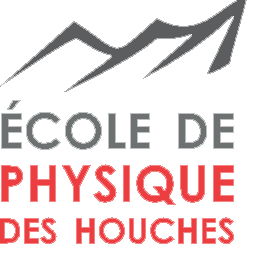Speakers
Description
Antihydrogen, the bound state of a positron and an antiproton, is being studied by the ALPHA collaboration at CERN so that it can be compared to its matter counterpart, hydrogen. Antihydrogen is synthesised by merging plasmas of antiprotons and positrons in a magnetic trap, allowing a small fraction of the antihydrogen atoms created, the coldest, to remain trapped.
Decreasing the temperature of the antihydrogen when it is formed would in turn increase the trapping rate, allowing measurements to be performed with better systematics and in shorter periods of time. By introducing a cloud of beryllium ions into the positron plasma, it would be possible to laser-cool the beryllium ions, allowing them to sympathetically cool the positron plasma. This laser-cooled positron plasma could then be used for antihydrogen formation, potentially allowing for order of magnitude increases to the antihydrogen trapping rate.
